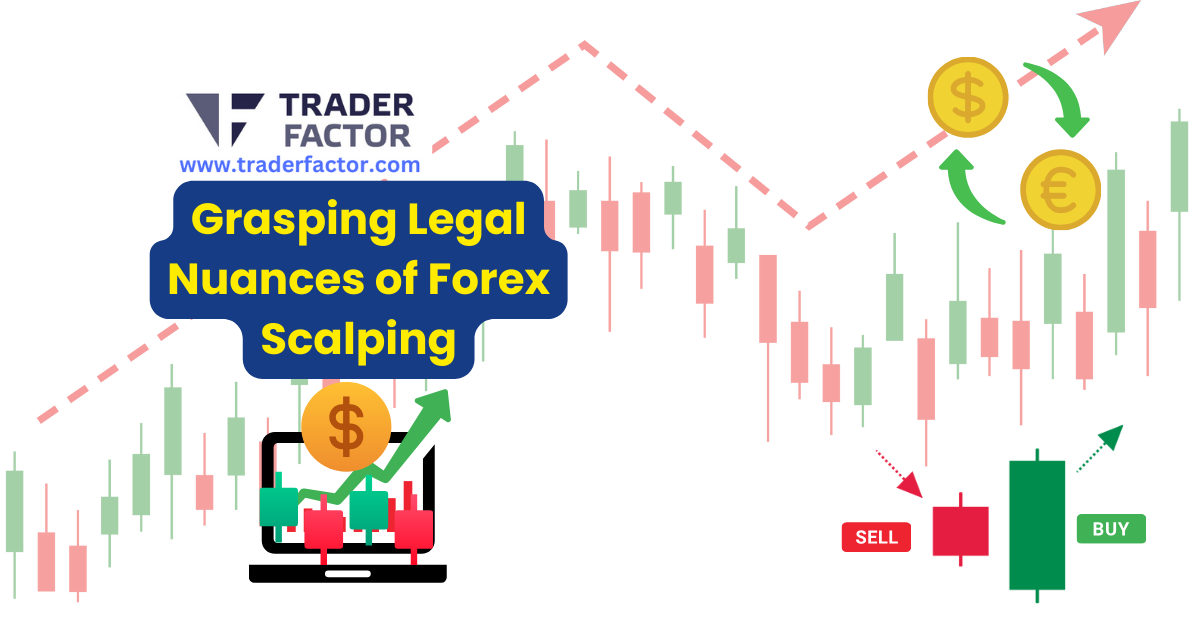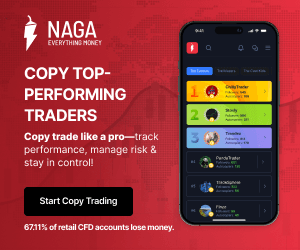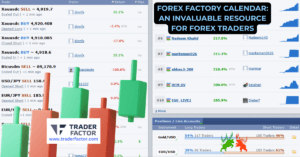“As the saying goes, ‘knowledge is power,’ and when it comes to Forex scalping, this couldn’t be more true. You’re stepping into a realm where quick decisions can lead to significant profits, but it’s not as simple as it may seem. It’s not just about identifying trends and making fast trades; you’ve got to understand the legal landscape, too. Laws and regulations can vary greatly from one region to another, and falling foul of these can cause severe consequences. The question isn’t just, ‘Can you catch the market trends?’ but also, ‘Do you know the legal aspects well enough to navigate this high-paced trading strategy successfully?’ So, are you ready to navigate this challenging yet rewarding terrain?”
Table of Contents
ToggleKey Takeaways
- Forex scalp trading is a fast-paced and short-term trading strategy used in the foreign exchange market.
- Scalpers aim to make small, quick profits by buying and selling currency pairs within a very short time.
- Risk management and position sizing are crucial in forex scalp trading to protect against significant losses.
- Technical analysis, such as utilizing indicators and setting stop-loss orders, is commonly used to identify short-term price movements in forex scalp trading.
Understanding Forex Scalping
Diving into the world of forex scalping, it’s crucial to grasp that it’s a rapid-fire trading strategy designed to make profits from small changes in currency prices. Mastering forex scalping techniques demands practice, precision, and a deep understanding of market dynamics.
Scalping profitability relies on your ability to make numerous trades, capturing small profits that accumulate over time. You’re not looking for the big win; instead, you’re banking on the power of compounding those small gains.
The scalping psychology is all about resilience and quick decision-making. You’ve got to stay focused, keeping emotions in check, and react swiftly to market changes. This requires a cool head and a firm grip on your self-discipline.
Performing scalping market analysis, you’ll be constantly hunting for minor fluctuations that offer trading opportunities. Sharp, real-time analysis is your best friend here, helping you to identify profitable entry and exit points.
Lastly, when it comes to scalping risk assessment, it’s vital to set tight stop-loss orders to protect your capital. Remember, you’re playing a numbers game – the more you trade, the higher the risk. So, manage those risks smartly to safeguard your profits.

Legal Aspects of Forex Scalping
While mastering the techniques and psychology of forex scalping is crucial, you should also be aware of its legal nuances to ensure you’re trading within the bounds of the law. Forex scalping regulations vary from country to country, presenting jurisdictional challenges that you need to navigate smartly.
- Forex Scalping Regulations: Different countries have disparate regulations concerning forex scalping. Some permit it, while others don’t. You’ve got to be familiar with the regulations in your jurisdiction and trade accordingly.
- Legal Implications: Violating scalping laws could lead to penalties, trading suspensions, or even legal action. It’s vital to understand the legal implications before you start scalping.
- Regulatory Compliance: Complying with the regulations of the regulatory bodies in your area is non-negotiable. These might include reporting requirements, minimal capital requirements, and trading restrictions.
- Broker Restrictions: Some brokers have stringent restrictions on scalping, including a minimum time limit between the buying and selling of currencies.
Risk Management in Scalping
In the fast-paced world of scalping, you must prioritize effective risk management to protect your capital and ensure longevity in trading. This is where setting realistic profit targets, maintaining trade discipline, and conducting thorough market analysis come into play.
The table below offers a snapshot of how these elements interact:
| Risk Management | Trade Discipline | Market Analysis |
| Limit losses with stop orders | Stick to your trading plan | Understand market trends |
| Set realistic profit targets | Avoid impulsive decisions | Use technical indicators wisely |
| Diversify your trading portfolio | Respect your trading hours | Consider economic events impacting currency pairs |
You mustn’t overlook regulatory compliance, another crucial part of risk management. Ensure your scalping strategies align with the rules set by your broker and the financial regulatory body in your region.
Ultimately, the key to successful scalping lies in balancing the pursuit of profit with the preservation of capital. By managing risks well, respecting trade discipline, and making informed decisions based on thorough market analysis, you can navigate the choppy waters of forex scalping more effectively.
Scalping and Broker Regulations
Before you dive into forex scalping, it’s crucial to understand your broker’s stance on this trading strategy. Not all brokers are scalping-friendly due to the legal implications and regulatory guidelines they must adhere to.
- Scalping Restrictions: Some brokers may have specific scalping restrictions in place. They might limit the number of trades you can make in a day or require you to hold onto a position for a minimum amount of time.
- Broker Compliance: Brokers must comply with regulations set by financial authorities. These rules can impact their policies on scalping. Hence, it’s essential to read their terms and conditions thoroughly.
- Regulatory Guidelines: Different regions have different scalping regulations. For instance, scalping is legal in the U.S. but heavily regulated. Ensure you’re aware of the guidelines relevant to your location.
- Legal Implications: Breaching your broker’s scalping rules can lead to serious consequences, including account suspension or legal action.

Scalping Strategies and the Law
You need to understand that the legality of your chosen scalping strategy can vary depending on your location and the specific rules of your broker. Forex scalping techniques are often questioned regarding their legality, primarily due to the rapid and frequent transactions that characterize this strategy. It’s crucial to ensure your broker permits scalping, as it can impact scalping profitability significantly.
While scalping enables traders to capitalize on small price movements, it’s often associated with market manipulation. Some jurisdictions perceive scalping as an unfair practice that disrupts market integrity. Therefore, you must be aware of local regulations to avoid potential legal complications.
Then there’s the matter of scalping and tax implications. Depending on your tax jurisdiction, the profits from scalping may be subject to short-term capital gains tax, which is generally higher than long-term rates.
Lastly, consider scalping and investor protection. Regulators often have rules in place to safeguard investor interests. Non-compliance with these rules can lead to penalties or other legal consequences. Hence, understanding the legal nuances of your chosen scalping strategy is vital to navigate the forex market effectively and legally.

Forex Scalping in Different Jurisdictions
Having understood the legalities tied to scalping, let’s now explore how forex scalping is perceived and regulated in different jurisdictions around the world.
- USA: In the United States, forex scalping regulations are stringent. The National Futures Association (NFA) enforces strict regulatory frameworks on scalpers, imposing heavy fines for non-compliance.
- UK: In contrast, the UK’s Financial Conduct Authority is more lenient, allowing scalping but under careful scrutiny.
- Australia: The Australian Securities and Investments Commission, whilst permitting scalping, mandates compliance requirements to ensure fair trading.
- Japan: In Japan, the Financial Services Agency imposes restrictions on leverage, affecting the scalability of scalping.
These jurisdictional considerations highlight the need for scalpers to understand the legal implications of their strategies. Conducting business within the confines of the law is paramount to avoid punitive measures.

Legal Challenges in Forex Scalping
Navigating the legal landscape of forex scalping can pose significant challenges, especially given the varying regulations across different jurisdictions. Understanding scalping regulations is vital to avoid any legal repercussions. You must stay updated with the changing norms and maintain a robust compliance system to prevent violations.
Scalping legality isn’t universal and varies from country to country. Some jurisdictions openly welcome scalping, while others impose scalping restrictions, such as the requirement of a license or specific trading rules. It’s essential to familiarize yourself with these conditions to ensure you’re not operating outside the law.
Scalping compliance is another area that requires your attention. Adhering to the rules set out by regulatory bodies is crucial. Non-compliance can lead to severe penalties and even the suspension of trading licenses.
Lastly, don’t overlook the importance of enforcement. Regulatory bodies are increasingly cracking down on illegal scalping activities. They enforce regulations stringently to maintain market integrity and protect traders.
Ensuring Compliance in Scalping
To ensure compliance in scalping, it’s crucial to stay informed about the latest regulations and adhere strictly to them. You’re not just a trader; you’re also a law-abiding citizen. Your legal obligations extend beyond the realm of trade execution and delve into the intricacies of regulatory requirements.

- Stay Informed: Regularly check updates from regulatory bodies. Laws evolve, and so should your knowledge.
- Clear Communication: Ensure your broker comprehends your scalping strategies clearly, avoiding any potential misunderstandings.
- Record Keeping: Maintain a meticulous record of your trades. This will help you prove your transparency and honesty, particularly if suspicions of market manipulation arise.
- Legal Counsel: Consider having a legal counsel familiar with Forex trading. They can provide guidance on complex regulatory landscapes, assisting in ensuring compliance.
The Role of Regulatory Bodies in Scalping
While you’re diligently meeting your legal obligations as a scalper, it’s also crucial to understand the role regulatory bodies play in this trading strategy. These entities establish regulatory guidelines, creating a framework for legal and fair trading. The importance of regulation can’t be overstated. It keeps the market in check, preventing fraudulent practices and encouraging transparency.

Regulatory bodies impose legal restrictions on scalping, setting limits on order sizes, trade frequency, and even the specific timeframes you can scalp. They also emphasize compliance considerations, requiring you to maintain accurate records of your trades for potential audits.
Regulatory enforcement is a key aspect of their role. If you violate any rules, these bodies have the authority to impose penalties, ranging from fines to suspension of your trading license. Therefore, staying informed about the latest regulations and adhering to them is not just a suggestion, but a necessity.
Navigating Legalities for Successful Scalping
Understanding the legal landscape is crucial if you’re planning to make scalp trading a regular part of your investment strategy. The regulations governing this practice vary greatly from one jurisdiction to another. Hence, you must be well-versed with these differences to ensure full compliance.
- Scalping Regulations: Familiarize yourself with the rules that govern scalping in your region. Some jurisdictions allow it, while others impose strict limitations.
- Legal Implications: Ignorance of the law excuses no one. Violating scalping regulations can lead to penalties or even trading bans. Therefore, you need to understand the legal implications fully.

- Compliance Measures: Adhere to all compliance measures outlined by regulatory bodies. This includes record keeping, reporting transactions, and adhering to market conduct rules.
- Broker Requirements: Choose a broker who allows scalping and provides favorable trading conditions. Remember, broker requirements can significantly impact your scalping strategy.
Jurisdictional differences play a significant role in shaping the legal framework around scalping. As a trader, it’s your responsibility to stay compliant. By doing so, you’ll navigate the world of scalping successfully, maximising your potential for profit while minimising legal risks.
Frequently Asked Questions

How Does Tax Law Apply to the Profits Made From Forex Scalping?”
You’re obliged to report profits from forex scalping to avoid tax evasion risks. Explore tax deduction opportunities and understand corporate taxes’ impact. Be mindful of cross-border tax complications, as laws vary internationally.
What Are the Specific Legal Considerations for Forex Scalping in Countries Not Discussed in This Article?”
You’ll need to research regulatory restrictions, scalping legislation, and requirements for scalping licenses in those specific countries. Be aware of legal penalties and cross-border scalping laws to avoid unexpected legal issues.
How Do Anti-Money Laundering Laws Impact Forex Scalping Practices?”
Anti-money laundering laws impact your forex scalping practices by requiring regulatory compliance. Scalping regulations may involve legal sanctions, surveillance measures, and transaction monitoring to prevent illegal activities. So, you’ll need to stay vigilant and informed.

What Are Some Legal Issues Scalpers Have Faced With Online Forex Trading Platforms?”
You’ve likely encountered scalping regulations, brokerage compliance issues, and even scalping lawsuits. Regulatory bodies scrutinize online platforms for fairness, and trading litigation can result from discrepancies in scalping practices. It’s a challenging legal landscape.
What Role Do International Trade Agreements Play in Forex Scalping?”
International trade agreements, like bilateral and multilateral frameworks, influence forex scalping. Your understanding of agreement interpretations and compliance can help navigate trade disputes. It’s crucial to comprehend these legal nuances for successful forex scalping.

Conclusion
Navigating the legal landscape of Forex scalping can be daunting, but with the right knowledge, you’re set to conquer this high-paced trading strategy. Understanding the laws, regulations, and risk management will keep you on the right side of legality. Remember, every scalp trade impacts your overall profit, so make your moves wisely. Keep abreast with the latest regulatory updates and always trade with compliance. Here’s to your success in legally compliant Forex scalping!
Disclaimer:
All information has been prepared by TraderFactor or partners. The information does not contain a record of TraderFactor or partner’s prices or an offer of or solicitation for a transaction in any financial instrument. No representation or warranty is given as to the accuracy or completeness of this information. Any material provided does not have regard to the specific investment objective and financial situation of any person who may read it. Past performance is not a reliable indicator of future performance.
















